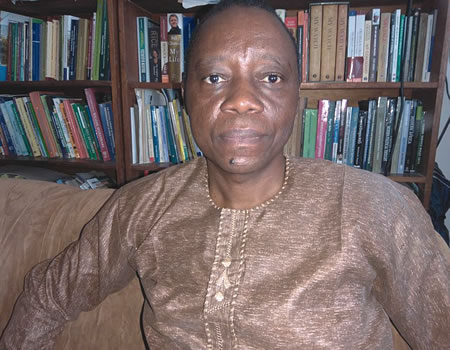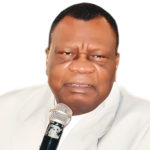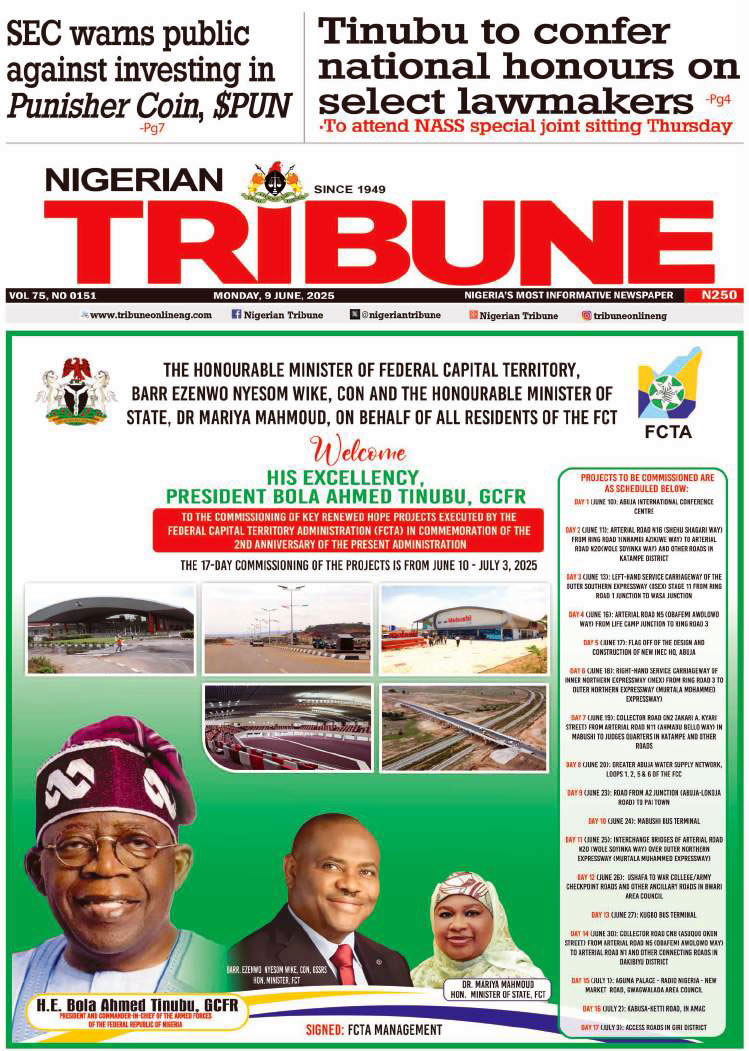AS a political science teacher, what do you make of the schedule of activities for 2019 elections released by the Independent National Electoral Commission recently?
There are two things. One, we really need to commend INEC for the prompt and timely release of the schedule for elections. There is no doubt that this should, of course, enhance preparations for elections by relevant stakeholders. I think that is one aspect that one has to point out. Of course, with respect to the duration of campaign itself, I do not see anything significant departure in the patterns of the past elections.
How do you mean?
I mean in terms of the duration of campaign, there is actually no significant departure from what we had in the past, say for instance the 2015 elections. But indeed, in terms of the period for the conduct of primaries, I think what we have now is actually better.
In terms of the time scheduled for party primaries for 2019 elections, the primaries are coming earlier than what we had in 2015. This is a good development in case there are problems about candidature. The other point to also note is that INEC’s activities are guided by relevant legal frameworks such the Electoral Act and of course the 1999 Constitution as amended, within which they have to work. Having made those observations, I fully appreciate the concerns that the set duration for campaign which some regard as relatively short. Given the need to focus on issues during campaign and elections, I agree that adequate time is required because candidates should be able to present themselves in such a way that we will know their position of key issues, how they intend to address the problems confronting the country, their policy prescriptions and approach about how they want to deal with the problems. It will also enable us to know the general level of preparedness of those aspiring to lead us, even their level of competence, physical mental state and general level of readiness. If you put all these together and given the size of the country and the nature of the terrain, clearly we need to give them enough time to reach the populace and sell their programmes to them. So, time is very important.
I also need to make this point that the nature of our primaries is really largely a closed system, unlike the direct primary system that is operated in the United States. Because it is a closed system, while aspirants are trying to get their parties’ nominations, they are not really selling themselves to the populace. In other words, we are not able to evaluate them because they are not really directing their messages to us. This is unlike in the US where, even before the elections start and before the general campaign starts, you are able to assess the candidates while they are trying to get party nomination. So, that gives ample time to know the level of readiness of candidates and their mental stability and how fit they are. Not necessarily for 2019, but for future elections, we can tinker with the relevant provisions in the frameworks as see how we can improve on what we have. Election is a big, serious issue which we have to treat like that so that the electorate will be able to know the candidates well.
Do you the possibility of pre-election matters such as the propriety or otherwise of the emergence of candidates being concluded before the commencement of election in February?
That is also an advantage and this is where the judiciary comes in. I have always argued I am not particularly pleased with the way the judiciary has handles crucial election and party matters. That is an aspect the judiciary itself has not been able to deal with administratively. Maybe enabling laws can be set such that timeline can be set to make them deal with the pre-election cases timeously. The judiciary allows these cases to drag and this gives room for a high level of politicking, even between some members of the judiciary and some politicians. This is not actually good for the health of our democracy. Now that the primaries for 2019 elections are coming earlier, one will agree that the judiciary will have enough time to deal with pre-election cases before elections start. But I am not optimistic, given our history. Look at the PDP leadership crisis. It didn’t have to take that long and it was a very sensitive issue.
Are you saying that pre-election cases should be treated the way an election petition tribunal is given 180 days to deal with disputes arising from an election?
That is my argument. Pre-elections matters should be disposed of as quickly as possible before the election. This is the way we can strengthen democracy. In the last by-election to the Senate in the United States, there was a legal challenge by the candidate. It did not take time to dispense with the case. We can do that here in Nigeria by compelling the judiciary to deal with pre-election cases within weeks. That is the way to go. A lot of things that are unhealthy for our democracy are being perpetrated under the guise of litigation.
This is my point on this: We can also devise a means to dispose of pre-election matters in court before elections are held. I believe this can be achieved in one of two ways. One, either through a judicial administrative procedure which the judiciary itself will put in place, in which case the judiciary itself will put in place mechanisms to ensure that pre-election matters are dispensed with before the commencement of elections. Two, we can rejig or redefine the legal framework such that we put timelines and make it mandatory that pre-elections matters are concluded in the various levels of court before elections are held. If we do that, candidates going for election will be focused on the election and know that they are the right candidates. This will also minimise the level of manipulation that we have and some collaboration between some politicians and some judicial officers. Doing this will deepen democracy because we will be able to tighten loose ends. A situation where pre-elections matters are not determined before the tenure of the person holding the disputed office ends is extremely scandalous for our democracy and the country.
University academics drafted for election purpose as INEC ah-hoc staff are hitherto treated as untouchables and are not punished for identified infraction. But with the amendments made to the Electoral Act by the National Assembly, jail terms await such lecturers. What is your take on this?
I think that in any civilized society, nobody should be placed above the law. My position is that, if an academic goes for an election and compromises himself during an election, then than person is not even fit to be an academic. Whatever weight of the law that should be brought to bear on that person in my view is absolutely justified and I don’t think we should think twice before we apply sanction against such a person. Much of the impunity goes on in this country because sanctions are not imposed. Once people get punished for crimes and misdemeanor, thatwill reduce the propensity of others to commit the same or similar crimes. Even if it a professor who commits a crime during an election, let sanctions be applied the person should go to jail. I fully support sanctions for those who compromise the credibility of any election.
It has been observed that a lot of the malfeasance that is perpetrated during an election is actually done at the collation centres. In the amended Electoral Act, results are to be transmitted electronically to the collation centres from the polling units, in addition to announcing the results at the units. Do you see this addressing the challenge of doctored results in 2019 elections? Do you foresee any other challenges while using electronic gadgets for the elections?
We should have learnt a lot from the 2015 elections. The position of some of us at the town hall meeting on the use of card readers were a good machines to use, but that INEC did not approach properly. It was wrong for INEC to have used the gadgets in a general election across the country. INEC ought to have used it in a small constituency and then improve on it before deploying them for the general election. For 2019 elections, before we introduce anything electronic, we should do it piecemeal. For instance, we can use the governorship elections in Ekiti or Osun or even in a smaller constituency like the senatorial election in Anambra State to apply such before using it for general election. From such test running, we then see the deficiencies of the technology and deal with them before we can get to a point where we apply such gadget across the country simultaneously. That is my position.
Transmitting result from polling units to the collation centres as planned for 2019 would probably be in addition to manual transmission of the results. What this then affords is the opportunity to be able to cross check in case there are problems. It is okay. But a lot of focus should be on the polling units and people are encouraged to be vigilant at that level.






